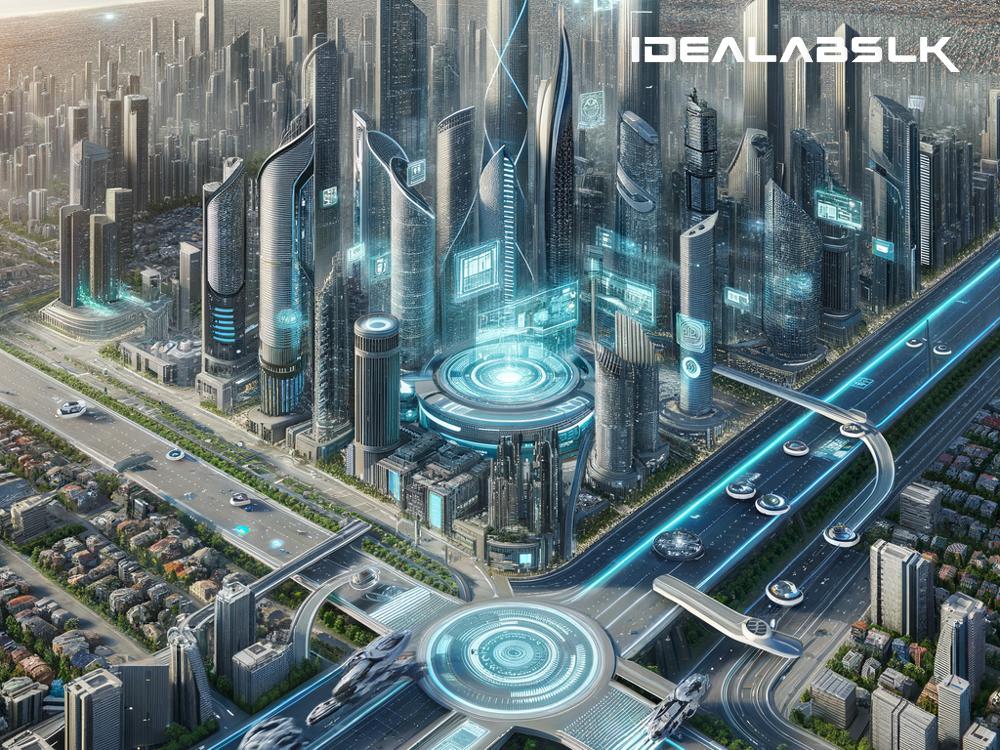Title: The Future is Smart: Tailoring Software for Tomorrow's Cities
Imagine walking down the street of what you’d call a "smart city". Street lights adjust as you pass, ensuring your path is well-lit while conserving energy. Nearby parking lots communicate in real-time, guiding you to the nearest vacant spot. Even waste bins alert sanitation departments when they’re full, streamlining garbage collection. This isn't a scene from a futuristic movie; it's the potential reality powered by custom software development for smart cities.
Smart cities are urban areas that integrate various types of electronic methods and sensors to collect data. The insights gained from that data are used to manage assets, resources, and services efficiently; in return, that data is used to improve the operations across the city. This includes data collected from citizens, devices, buildings, and assets that are then processed and analyzed to monitor and manage traffic and transportation systems, power plants, utilities, water supply networks, waste, crime detection, information systems, schools, libraries, hospitals, and other community services. The goal of smart cities is to enhance the quality of living for citizens through technology. But at the heart of these smart cities lies custom software development—tailoring digital solutions to meet the unique needs of each urban area.
Why Custom Software for Smart Cities?
The idea behind smart cities is not just about embedding technology everywhere but doing so in a way that improves the life of its residents. Every city has its unique challenges—be it traffic congestion, inefficient waste management, or energy use. Custom software development allows for personalized solutions that target these specific issues. Off-the-shelf software can offer a base, but it's the customization that aligns with local policies, integrates seamlessly with existing systems, and addresses the unique demographic needs.
Real-Time Data for Real-Life Problems
Smart cities thrive on data. But it's not just about collecting it—it's about analyzing this data in real time and making informed decisions. Custom software can handle vast amounts of data coming from various sources like sensors, cameras, and IoT devices, turning it into actionable insights. Whether it’s rerouting traffic to reduce congestion, predicting maintenance issues in public utilities before they occur, or ensuring public safety through smart surveillance, tailor-made software stands at the core of these solutions.
Seamless Integration
Imagine if every department in a city worked in a silo. Efficiency would plummet. Custom software development offers seamless integration of various city systems—transportation, healthcare, utilities, and more—allowing them to communicate and work together harmoniously. This interconnectivity enhances operational efficiency and greatly improves the responsiveness of city services to citizens' needs.
Sustainability and Resource Management
One of the pressing issues cities face worldwide is sustainability. Custom software solutions empower smart cities to better manage their resources, leading to sustainable urban living. For example, smart grids can balance and distribute energy based on real-time demand and supply, significantly reducing waste. Similarly, smart water management systems can detect leaks instantly and optimize water use, conserving this precious resource.
Enhancing Citizen Engagement
At their core, smart cities are about the people who live in them. Custom software developments can foster a new level of citizen engagement. Mobile apps can provide residents with real-time information about their city, from traffic updates to event schedules, and offer a platform for feedback and interaction with local government. This two-way communication builds a stronger, more connected community.
Challenges and Considerations
While custom software development holds the key to transforming cities, it's not without its challenges. Privacy and security are major concerns; collecting and analyzing data on such a large scale necessitates robust safeguards to protect citizens' information. Additionally, ensuring accessibility and inclusivity in these digital solutions is paramount; technology should enhance, not hinder, the urban experience for all residents.
Conclusion
The journey to becoming a smart city is complex and multifaceted, but at its core, it is driven by the goal of creating a better, more efficient, and more livable urban environment for its citizens. Custom software development plays a pivotal role in this transformation, offering tailor-made solutions that meet the unique needs of each city. By harnessing the power of technology, smart cities can tackle today's urban challenges head-on, paving the way for a sustainable, efficient, and inclusive future. The future is not just smart; it's customized for the betterment of cities and their residents alike.

